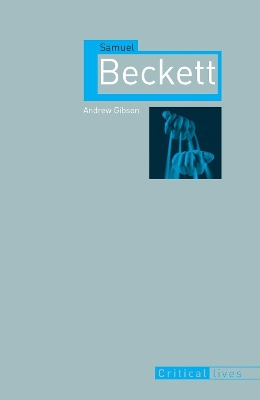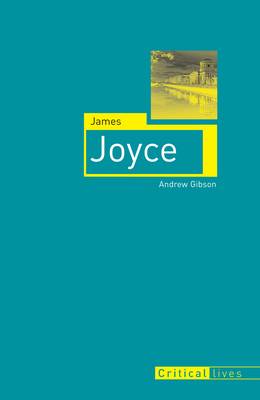Critical Lives
2 total works
The life of Samuel Beckett (1906-1989) has been the subject of exhaustive scholarship, yet by contrast Beckett himself was a spare, minimalist writer who deeply distrusted the techniques of biography. In this new, concise, critical account of Beckett's life and work, Andrew Gibson seeks to remain faithful to the writer's artistic aims, staying close to Beckett's style of thought and work in his analysis of this supremely modern figure. Beckett's Rockaby ends with a resounding 'fuck life': Samuel Beckett takes as its touchstone the formidable Beckettian drive to give up on the world. Gibson locates the logic of Beckett's drive through an analysis of his responses to modern history, showing how Beckett came to have an unusually profound feeling for the Zeitgeist, and a power of conveying it unrivalled by any other contemporary artist. This book tracks Beckett's painful progress through the historical situations that defined his experience: Ireland after independence, Paris and the Aecole Normale Superieure in the late twenties, London in the thirties, Nazi Germany, Vichy France, the early years of the Fourth Republic, the Cold War and the triumph of Capital in the 1980s.
It also analyses the (often muted and oblique) traces of and responses to these situations in a range of Beckett's works. As Gibson cogently argues, Beckett was devastated by modern history without being finally completely overpowered by it. He shows that Beckett espoused an extreme version of the Romantic doctrine that art is a criticism of historical forms of life, but also that Beckett's version is wryly ironical and perverse, for it stubbornly refuses to assume that life can ever say its final word.
It also analyses the (often muted and oblique) traces of and responses to these situations in a range of Beckett's works. As Gibson cogently argues, Beckett was devastated by modern history without being finally completely overpowered by it. He shows that Beckett espoused an extreme version of the Romantic doctrine that art is a criticism of historical forms of life, but also that Beckett's version is wryly ironical and perverse, for it stubbornly refuses to assume that life can ever say its final word.
In this new work, Andrew Gibson sets out to reverse the traditional view of Joyce and his work as the paradigm of international modernism in literature. Where criticism has usually consigned Ireland to secondary status in Joyce's work, Gibson firmly relocates the writer and his work in Ireland, showing them at all points to be intricately bound up in Irish history, politics and culture. Crucially, he views Joyce's departure for Europe as allegiance to an Irish emigratory tradition that is centuries old, rather than the abandonment of the old country. Accounts of Joyce's life and work have tended to give rather short shrift to his profound engagements with Irish history and politics. Gibson argues that there have been important reasons for this, themselves often historical and political. Tracing the development of Joyce as a critic and writer, he maps this development to specific political and historical events. Beginning with the political traditions and allegiances that formed part of Joyce's family background, he pinpoints the fall of Parnell, the collapse of political hope, and the transfer of political energies to cultural activity as crucial in the writer's early formation.
Joyce's immense renown has been due above all to his reputation as an experimental, modernist writer. His works' open-endedness and seemingly infinite availability to differing interpretations has allowed criticism to constantly update his politics. The book argues that Joyce's most important concerns were historically material and specific. Yet, it also recognises that Joyce himself encouraged and fostered the view of his work as modernist, which became the dominant tradition in Joyce studies.
Joyce's immense renown has been due above all to his reputation as an experimental, modernist writer. His works' open-endedness and seemingly infinite availability to differing interpretations has allowed criticism to constantly update his politics. The book argues that Joyce's most important concerns were historically material and specific. Yet, it also recognises that Joyce himself encouraged and fostered the view of his work as modernist, which became the dominant tradition in Joyce studies.

